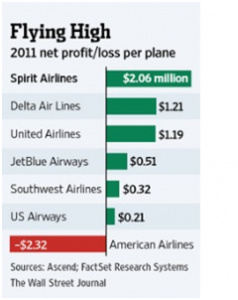This is an entry for the 2nd round of the Great Indian B-School Debate as a rebuttal to Delhi School of Economics earlier post.
Team: Kanti Shah ki Entry
Institute: IIM Trichy
Members: Subhash Rajeev, Vishnu Poduval
If none of your cooks are good, who do you turn to?
Q: What’s better than having too many lousy chefs?
A: As our opponents said, a few skilled ones.
Q: What’s even better than having a few skilled chefs?
A: As we said earlier, a few more skilled chefs!
The old adage of “too many cooks spoiling the broth” ,if you pay attention to details, is about all the cooks working on the “same broth”. But is that how markets actually work? Nope. Here, every chef is busy working on their own broth in their own way. The chefs offering the best broths make it big. The others make losses and fall by the wayside. Now what happens if they’re all making poor broths – well customers are unhappy and nobody makes any profits. Until a new chef come along with a better recipe and attracts customers to go for his/her broth. This jerks the whole group out of their slumber and forces them to roll up their sleeves and get to work to win back their customers. This leads to a few breakout ideas and a couple more chefs get successful. Overall, the customers get their desired service and only the chefs who deserved to stay in the business survive.
Now enough about broths, let’s move on!
Yes, the Indian Airline industry is bringing in loss after loss after loss every successive year. Yes, bringing in any more airlines to an already crowded sector might spell disaster and the end for some of the fledgling airlines currently in business. Yes, Kingfisher airlines failed and Air India made losses of Rs. 72 billion by 2009. Sounds like quite an exciting opportunity for a start doesn’t it?
Although it’s true that the Indian aviation industry is fraught with dangers of low profitability and has been a source of losses for years now, this is exactly the reason why we need more players with considerable years of international experience in it. Truth be told, the hardest battle is to attract new players into this industry to infuse new blood into it.
But how does one incentivise investors to pour capital into a sector that has made losses for the past 6 years? With the simple truth that the existing players in the industry just aren’t good enough. How is it that 1 company among those 7 managed to make profits? How exactly did Indigo even manage to remain in the green in the midst of the bloodbath that kept occurring all around it at similar fares, sometimes even lower than the competition whilst having to face the same challenges faced by all its peers? It just goes to show that profitability is not a myth in the aviation industry; it is within grasp if done right.
Figure 1: Yes, THAT Rs. 10 extra that IndiGo makes per ticket is the answer to profitability.... Not
We agree with the opposing team when we say that the need of the hour is to take immediate steps to make the aviation sector streamlined and more efficient. How do we do that? One word: COMPETITION. Competition is about weeding out the weak and inefficient and only having room for the survivors. Competition spurs improvement, breeds innovation and is the only reason that corporations ever evolve. Why leave it to the existing bunch or the officials or the government to try to streamline the sector when competition would help to do it anyway at a much lower cost?
Figure 2: Clearly, someone forgot to mention to them that airlines make HUGE losses. Oh, and did you notice that this was the USA post-recession?
All the points mentioned by our opponents to improve the existing fleet of airlines is just the corrective action needed to steady the ship. And many of them are in the hands of the government anyway who seem to be finally waking up. Some of the corrective measures unveiled by the Civil Aviation Ministry last year only are as follows:
- Direct import of ATF to offset the high sales tax imposed on it.
- Maintenance, Repairs and Overhaul' (MRO) operations included under the airportinfrastructure category, in a view to facilitate external commercial borrowings (ECB)for the sector
- Extension of duty-free period for parts and testing equipments imported forMaintenance, Repairs and Overhaul (MRO) from three months to one year.
All these steps if taken up by the current crop of airlines would only incentivise more players to enter the sector whether through joint ventures or independently.
Post that is where the real challenge would begin – catering to the growing air traffic both domestically & internationally, existing hubs as well as new routes, the list is long. And this is where our industry stands to get exposed if we don’t get new players in. The threat is real of the gap between demand and supply going unmet.
In short, new blood would definitely help to clean up the airline industry, but it must be argued whether that will also be sufficient. The industry has a number of problems plaguing it currently such as the high ATF costs incurred, the outsourcing of MROs (which could become attractive if more airlines were involved) and the enormous amount of taxes paid. A few positive steps from the Civil Aviation ministry and the entry of these new players would only help to further stabilize the industry in the long run by forcing firms to become more cost-effective or risk their market shares being devoured by the next airline that comes in line to usurp the iron throne for the Indian skies.


